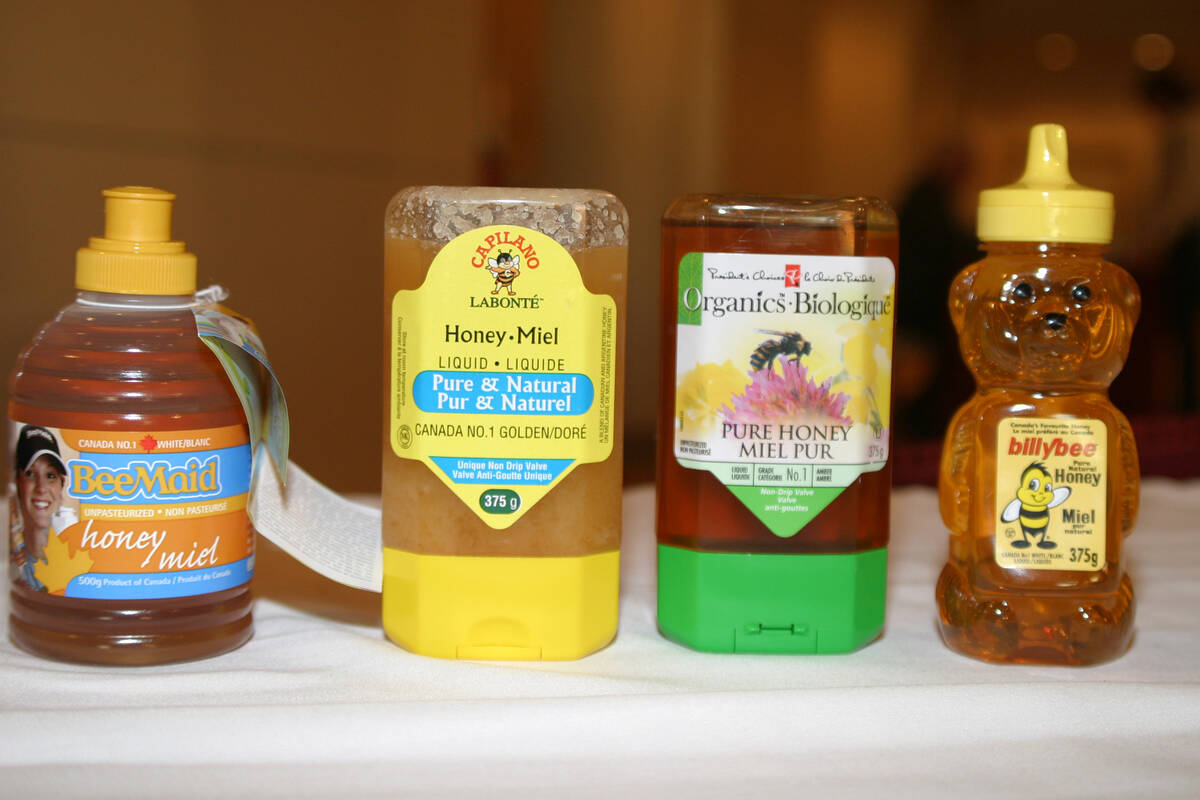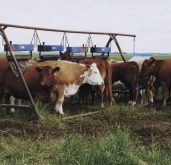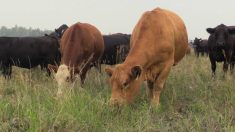Leptospirosis has been seen rarely in Western Canada. The three large pharma companies have leptospirosis vaccines, usually in combination with the standard five-way viral vaccines. They do not sell many doses, which indicates low frequency.
In veterinary practice, we have suspected it when seeing bloody diarrhea or with a high open rate or abortions. Leptospirosis titres are often found when testing bulls for AI entry. The titres mean there has been exposure on the farm but not necessarily anything clinical.
Veterinarians have often felt exposure came from wildlife, and this seems to wax and wane from year to year.
Read Also

Beekeepers call foul on fake honey
Canada’s beekeepers say the stubborn flow of adulterated honey hasn’t gone away, and it risks compromising both domestic honey producers and crop pollination.
A fair amount of clinical lepto is seen in Eastern Canada and the eastern U.S., especially in dairy cattle. The vaccine is a killed bacterium and a booster shot at the appropriate time is necessary for protection. There are many serotypes of lepto. Pomona and hardjo are the most prevalent and important ones in cattle, and probably the most pathogenic.
Clinically, leptospirosis presents as sick animals with bloody urine. Several other things cause bloody urine, such as low phosphorus, pyelonephritis and redwater disease. Some types of clover can even give urine a red colour.
With abortions in later pregnancy or even a very high open rate, the standard reproductive diseases such as vibrio, IBR, BVD and trichomoniasis need to be ruled out. Mycotoxins and even brucellosis must also be considered. There are various charts to help with differentiation of abortions but diagnosis may be made on the fetus and if not, blood samples showing high titres can be suggestive.
Treatment
Several things need to be discussed if leptospirosis is diagnosed. If it’s causing abortions, are there pregnant cows we want to treat to maintain the pregnancy? There are treatments for high titres on bulls. For cattle entering Mexico, authorities often want a vaccination against lepto or treatment with an antibiotic.
Bulls entering AI programs should be checked for lepto titres and only very low amounts are acceptable. Bulls are rarely clinical. It can be frustrating for the owner when a very promising herd sire goes down to lepto titres. Semen can be collected for Canadian use but lepto titres on bulls affect the ability to put up semen for U.S. export.
Keep wildlife away
Wildlife are often incriminated as the source of lepto in bulls. Deer and elk can spread it in their urine. Feces and urination in bale yards are potential sources. Lepto is a relatively fragile organism so fencing bale yards and limiting access to small pools of water will probably help.
We often see lepto titres rise and fall, and in my now-long career in veterinary medicine, I have never had a confirmed clinical case. Have I missed it or are levels too low to be clinical? Others have found very high titres in herds with reproductive failure as high as 50 per cent.
Lepto should always be on our radar when it comes to reproductive failure or clinical cases of bloody urine but there are many other causes of these signs.
I once thought leptospirosis was a figment of our imagination but was quickly corrected. It is clinical in Eastern Canada, and it causes significant losses in other countries. Prevention involves vaccination in combination with viral respiratory vaccines.
Leptospirosis will continue to be a mystery disease in Canada. Your local veterinarian is the best one to know whether you should include it in a vaccination protocol.


















